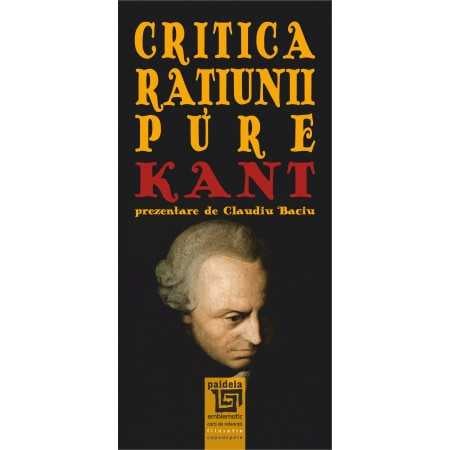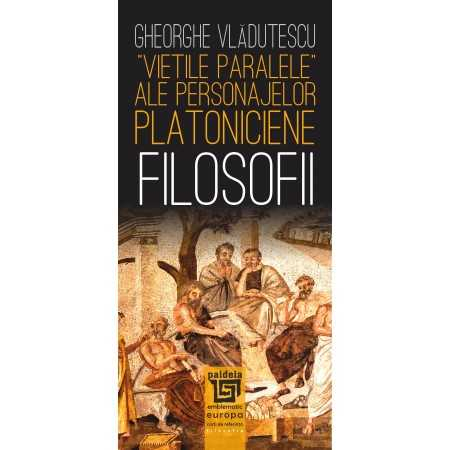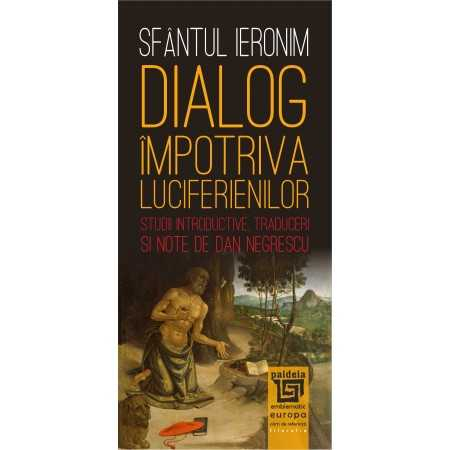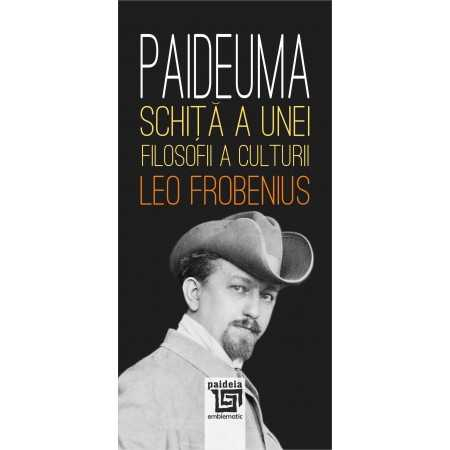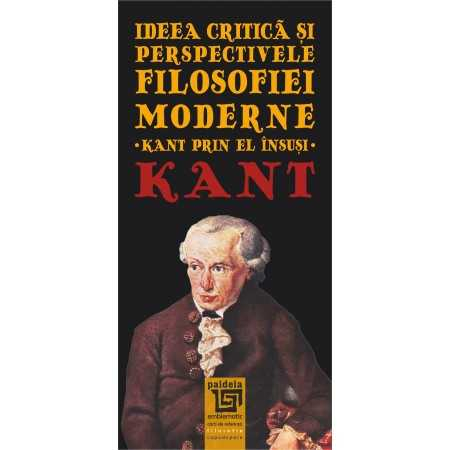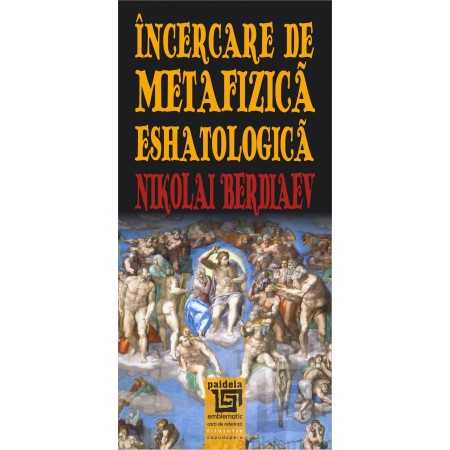ISBN: 978-606-28-1362-8
DOI: https://doi.org/10.5682/9786062813628
Publisher year: 2021
Edition: I
Pages: 212
Publisher: Editura Universitara
Author: Ciprian Vasile Rus
- Description
- Download (1)
- Authors
- Content
- More details
- Where to find it
- Reviews (0)
The paper is structured in five chapters, each chapter comprising several subchapters, appropriate to the content and research objectives assumed.
In the first chapter, entitled: The theological coordinates of the Orthodox Christian mission, are presented first, in their own exposition, the theological foundations of the Christian mission as they were deepened in the theological literature in the second half of the twentieth century and early 21st century. Next, the essential coordinates on which the Church's mission towards the Christian family is based are approached: The mystery of man and his fulfillment in Jesus Christ; Jesus Christ, the Apostle sent for the salvation and life of the world; Christian Mission and the Sacrament of the Church; The great missionary command and the mission and ministry of the apostles; The missionary apostolic church and the aspects of the mission: evangelization, witness, diakonia and pastorate. All these are presented to highlight the coordinates and aspects of the Church's mission that must take place in the context of contemporary society marked by what is to be set forth below.
In the second chapter, The Church and Mission in a Secularized World, the characteristics of the contemporary secularized world are presented, marked by: individualism, rationalism, atheistic ideologies, pre-Christian pantheism, as well as the information society, globalization and autonomy of contemporary society as challenges to the mission. The church. In this situation, the topicality of the post - Easter missionary mandate is emphasized, the quality of the Church as a confessional community is highlighted and the need for the Church 's dialogue with science, culture and society is shown.
In the third chapter, The Contemporary Psychosocial Context of the Church's Mission: Dangers and Challenges, the missionary dynamics, the organization of the parish, its ecclesiological orientation and philanthropy as a social activity of the Church's mission are exposed first, then controversial bioethical and moral issues are addressed. The chapter ends with the emphasis of the Church's mission in contemporary Romanian society.
The fourth chapter, Religion, the religious feeling and the moral values of the Christian, passes to the analysis of the religiosity, to the importance of the religion and of the moral values that it promotes in the life of the Christian believers from Romania. This issue is analyzed in the following subchapters: Religion and religious sentiment; belief as an affective dimension of religiosity: the role of moral values in religion; religious commandments in tradition and actuality. At the end of the chapter, the theological, educational and cultural mission of the Church is emphasized.
The chapter Psychosocial aspects of the family in the current context is the central and current part of the paper, both in terms of doctrinal ‑ theological, and in terms of social. The following topics are addressed here: the current situation of the family; elements of anthropogony and orthodox anthropology; marriage and its importance in the Old Testament period; the status of the woman and the duties of the spouses during this period; the family and its importance during the New Testament; family roles and functions; the biological function of the family; the function of family solidarity; the pedagogical, educational and moral function of the family; the perpetuation of the human race or the biological function; mutual help or family solidarity; the formative role: the family, the first educational institution; the Christian family between tradition and modernity: theological, psychological and sociological considerations; the relationship between the mission of the Church and the Christian family.
The work is devoted to a topic of major interest for missionary and Christian life. Father Ciprian Rus offers a work with immediate applicability for knowing the psychosocial context in which Christian families live today. In this sense it is very useful for theologians, students and priests and for all those engaged in one way or another in the mission of the Church, but also in the consolidation of ecclesial and missionary consciousness.
-
Mission of the Church in the psychosocial context of today's Christian family
Download
Preface / 11
Introduction / 16
CHAPTER I. THEOLOGICAL CONDITIONS AND THE CHRISTIAN MISSION ΟRTΟDΟXE / 23
I.1. The mystery of man and his fulfillment in Christ / 25
I.2. Pοruncа Great References. Mission and ministry of apostles / 32
I.3. Missionary Apostolic Church / 33
I.4. Aspects of the mission: evangelization, witness, diakonia, pastorate / 38
CHAPTER II. THE CHURCH AND MISSION INTO A SECULARIZED WORLD / 47
II.1. Secularization of the contemporary world: individualism, rationalism, atheist ideologies, pre-Christian pantheism, information society / 47
II.2. Globalization and autonomy of contemporary society - challenges to the mission of the Church / 65
II.3. The actuality of the post al Easter missionary mandate / 75
II.4. Confessional community church. Her dialogue with science, culture, society / 81
CHAPTER III. THE CONTEMPORARY PSYCHOSOCIAL CONTEXT OF THE MISSION OF THE CHURCH. DANGERS AND CHALLENGES / 90
III.1. Missionary dynamics, the organization of the parish and its ecclesiological orientation / 90
III.2. Philanthropy - the social side of the Church 's mission / 100
III.3. Controversial bioethical and moral issues / 109
III.4. The mission of the Church in the contemporary Romanian society / 119
CHAPTER IV. RELIGION, RELIGIOUS FEELING AND MORAL VALUES OF THE CHRISTIAN / 125
IV.1. Religion and religious sentiment / 125
IV.2. The affective dimension of religiosity (faith) / 134
IV.3. Moral values in religion / 138
IV.4. Religious commandments - tradition and actuality / 142
CHAPTER V. PSYCHO-SOCIAL ASPECTS OF THE FAMILY IN THE CURRENT CONTEXT / 147
V.1 The current situation of the family: general considerations / 147
V.2. Elements of anthropogony and orthodox anthropology / 150
V.3. Marriage and its importance in the Old Testament period / 153
V.4. The status of the woman and the duties of the spouses / 156
V.5. The family and its importance during the New Testament / 159
V.6. The roles and functions of the family / 165
Conclusions / 177
Bibliography / 179
According to God's plan, the marriage of a man to a woman is the foundation of the wider communion that is the family, because the very institution of marriage and conjugal love are ordained for the procreation and education of children in whom marriage finds its crown. Thus the spouses bring to life the children, the living reflection of their love, a permanent sign of their unity of father and mother. By becoming parents, husbands receive a new responsibility from God. Their parental love is called to become for their children the visible sign of God's love for people, from which comes all paternity in heaven and on earth (cf. Ephesians 3:15). Within the family, a set of interpersonal relationships is born - relationship between spouses, between parents and children: paternity ‑ maternity, filiation, fraternity - through which each human person, family member is introduced in the "human family" and in his family God »which is the Church.
And because man does not have the truth in himself, but in communion with God, only an authentic Christian family can ensure a favorable psychosocial environment for the birth, upbringing, education and fulfillment of children, until they themselves establish a family and become, in turn, and their parents.
The Christian family thus has a special missionary role. The church expands in time and space through the Christian family. From its inception, the Christian Church was formed after the model of the family, as a community of Christian love. The Christian family is, therefore, the most conducive environment for the transmission of the Christian faith and life. Spiritual guidance and the direct or indirect example of parents are of crucial importance. It could be said that Christian parents are the most important mediators between the Church and the world. For through them the baptism of children and youth is made, and also through them the children are sent into the world as disciples of Christ. It is an extension through them of the Church into the world and a bringing of the world into the Church. Therefore, the Christian family has the mission to become what it is in God's plan, that is, a deep communion of love, in a tension that will find its final fulfillment in His Kingdom. The Christian family has a mission to preserve, reveal, and communicate faith and love as living reflection and real participation in God's love for mankind. All the duties of the Christian family and its members are a concrete and detailed accomplishment of this fundamental mission.
The negative phenomena that break up marriage and the family are the result of a misconception about freedom and fulfillment of man, these being understood not as the realization and fulfillment of man in love and communion and as the fulfillment of God's plan for marriage and family, but as autonomous power. of selfish and therefore sinful self-assertion.
In stark contrast to the ideals of the Christian family, as I have outlined before, in secularized and considered autonomous postmodern society, the Christian family faces multiple challenges that threaten its very dissolution.
In this context, the Church's missionary perspective in the 21st century on the family must take into account, more than ever, the new economic, political and psychosocial conditions in which the great human family lives. For the family, as a fundamental institution of human society and the Church, is subject, in many cases, to a process of reconstruction, initiated by the liberalization of family life, the simplification of divorce procedures, the legalization of adulthood at age 18 and abortion.
The process is still ongoing today, the family defining today alternative forms of housekeeping, unique role structures, accepting the almost total disappearance of the hierarchy, the authority associated with the hierarchy and the debts derived from Christian family morality. It can be said that the family is approached today as a process, rather than as an institution. In such a context, clarifications on the phenomena associated with this redefinition are absolutely necessary. Hence the great interest, both public and scientific, on the subject of the family.
The paper is structured in five chapters, each chapter comprising several subchapters, appropriate to the content and research objectives assumed.
In the first chapter, entitled: The theological coordinates of the Orthodox Christian mission, are presented first, in their own exposition, the theological foundations of the Christian mission as they were deepened in the theological literature in the second half of the twentieth century and early 21st century. Next, the essential coordinates on which the Church's mission towards the Christian family is based are approached: The mystery of man and his fulfillment in Jesus Christ; Jesus Christ, the Apostle sent for the salvation and life of the world; Christian Mission and the Sacrament of the Church; The great missionary command and the mission and ministry of the apostles; The missionary apostolic church and the aspects of the mission: evangelization, witness, diakonia and pastorate. All these are presented to highlight the coordinates and aspects of the Church's mission that must take place in the context of contemporary society marked by what is to be set forth below.
In the second chapter, The Church and Mission in a Secularized World, the characteristics of the contemporary secularized world are presented, marked by: individualism, rationalism, atheistic ideologies, pre-Christian pantheism, as well as the information society, globalization and autonomy of contemporary society as challenges to the mission. The church. In this situation, the topicality of the post - Easter missionary mandate is emphasized, the quality of the Church as a confessional community is highlighted and the need for the Church 's dialogue with science, culture and society is shown.
In the third chapter, The Contemporary Psychosocial Context of the Church's Mission: Dangers and Challenges, the missionary dynamics, the organization of the parish, its ecclesiological orientation and philanthropy as a social activity of the Church's mission are exposed first, then controversial bioethical and moral issues are addressed. The chapter ends with the emphasis of the Church's mission in contemporary Romanian society.
The fourth chapter, Religion, the religious feeling and the moral values of the Christian, passes to the analysis of the religiosity, to the importance of the religion and of the moral values that it promotes in the life of the Christian believers from Romania. This issue is analyzed in the following subchapters: Religion and religious sentiment; belief as an affective dimension of religiosity: the role of moral values in religion; religious commandments in tradition and actuality. At the end of the chapter, the theological, educational and cultural mission of the Church is emphasized.
The chapter Psychosocial aspects of the family in the current context is the central and current part of the paper, both in terms of doctrinal ‑ theological, and in terms of social. The following topics are addressed here: the current situation of the family; elements of anthropogony and orthodox anthropology; marriage and its importance in the Old Testament period; the status of the woman and the duties of the spouses during this period; the family and its importance during the New Testament; family roles and functions; the biological function of the family; the function of family solidarity; the pedagogical, educational and moral function of the family; the perpetuation of the human race or the biological function; mutual help or family solidarity; the formative role: the family, the first educational institution; the Christian family between tradition and modernity: theological, psychological and sociological considerations; the relationship between the mission of the Church and the Christian family.
The work is devoted to a topic of major interest for missionary and Christian life. Father Ciprian Rus offers a work with immediate applicability for knowing the psychosocial context in which Christian families live today. In this sense it is very useful for theologians, students and priests and for all those engaged in one way or another in the mission of the Church, but also in the consolidation of ecclesial and missionary consciousness.
The data and information used in the elaboration of the paper, as well as the conclusions formulated can be used by students, priests and specialists in the field, the paper can serve as a starting point for further investigations on such an important and current topic: knowledge of mission the mission of the Church regarding the Christian family, in the psychosocial context of the contemporary postmodern, secularized and globalized society. For all these reasons, I recommend it for publication.
Prof. Univ. Dr. Valer BEL
Faculty of Orthodox Theology,
Babes Bolyai University Cluj Napoca
Customer Support Monday - Friday, between 8.00 - 16.00
0745 200 718 0745 200 357 comenzi@editurauniversitara.ro
6359.png)
![Mission of the Church in the psychosocial context of today's Christian family [1] Mission of the Church in the psychosocial context of today's Christian family [1]](https://gomagcdn.ro/domains/editurauniversitara.ro/files/product/large/rus-cirpian_misiunea-bis-in-contextul-psihosocial-_bt-3514-5370.jpg)
